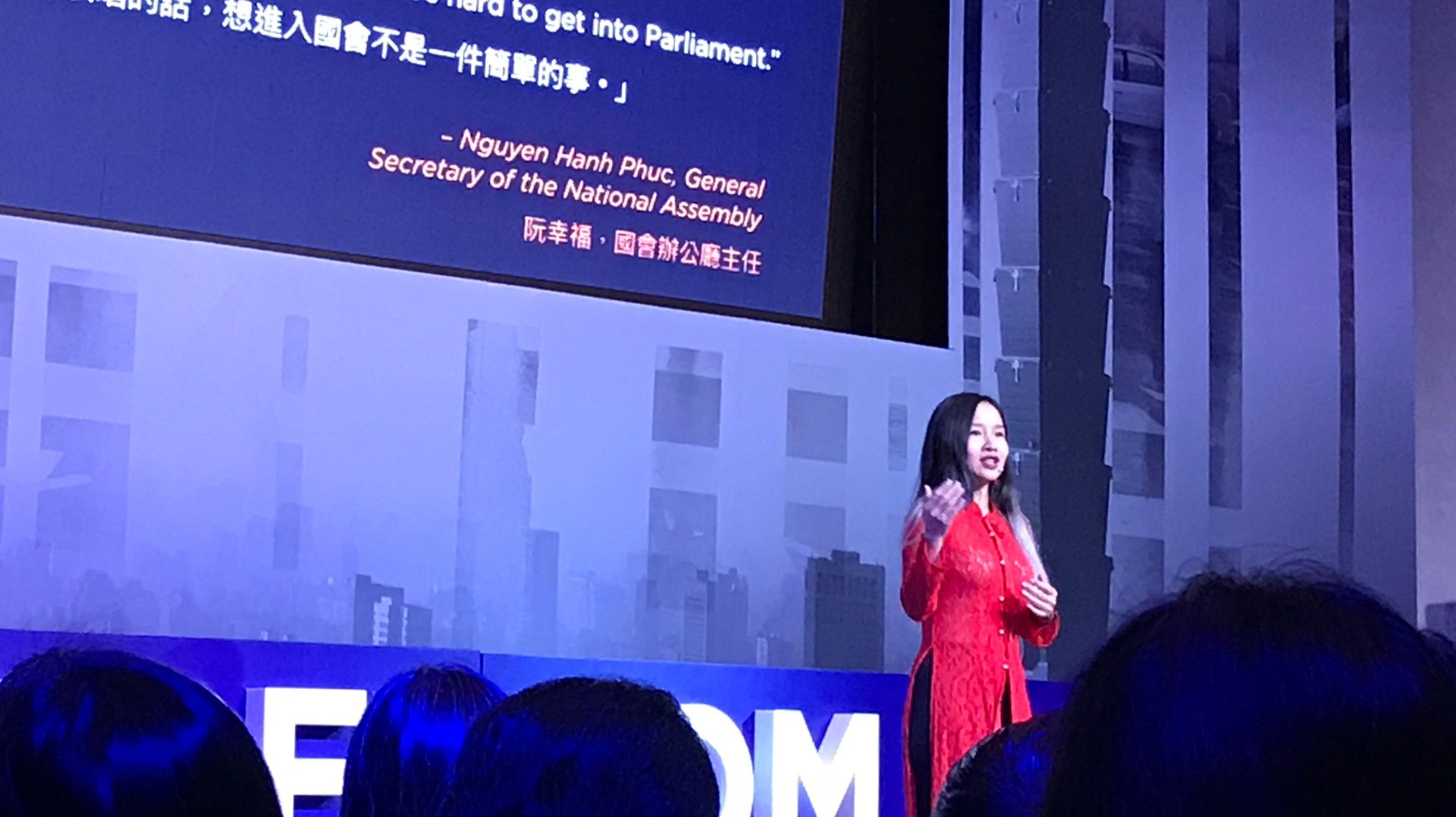Vietnam’s Lady Gaga is pressuring Facebook to stop complying with censorship laws
Mai Khoi never intended on becoming an activist.


Mai Khoi never intended on becoming an activist.
“I had a lot of fans, songs, and money,” said the Vietnamese pop star who’s been likened to Lady Gaga and Pussy Riot (paywall). “Life was easy and comfortable, but it wasn’t enough for me.”
At the Oslo Freedom Forum in Taipei, Khoi opened her talk with a performance of her song “Vietnam,” which urged her fellow citizens to “step out from the fear” and “raise our voice, speak, sing, scream.”
Now 34 years old, Khoi is trying to use her celebrity to pressure Facebook to stop complying with, and instead push back against, government censorship.
The singer said she became disenchanted with Vietnamese pop music because of how artists would censor themselves, leading her to spend time with the country’s dissident artists. One of them persuaded Khoi to use her platform to run as an independent candidate for Vietnam’s national assembly in 2016. She was eventually barred from the ballot, and used that publicity to get a sit down with then US president Barack Obama when he was in the country that year.
“Just as I thought things were starting to get better, freedom of expression is under threat now,” she said. “Before the internet, we had nowhere to go and express ourselves freely. The government controlled everything. The advent of the internet and social media changed it.”
The internet has allowed her to protest and release music banned by the government. “But at the same time, I’ve seen a space as Facebook being abused. Dissent is being silenced,” Khoi added. Many accounts of activists and journalists are locked because Facebook is working with the government to suppress dissent, she said. Facebook did not immediately respond to a media inquiry about the matter.
However, three weeks ago, Khoi landed a meeting with Facebook representatives in California. “I showed them how their platform is being abused to silence dissent and I told them they have to take responsibility,” she said.
In addition, she asked Facebook to issue a statement on how it would refuse to comply with local laws silencing dissent.
“They are discussing about this and they promised to respond to me, but if we don’t put more pressure on this, nothing’s going to change,” she told forum’s audience.